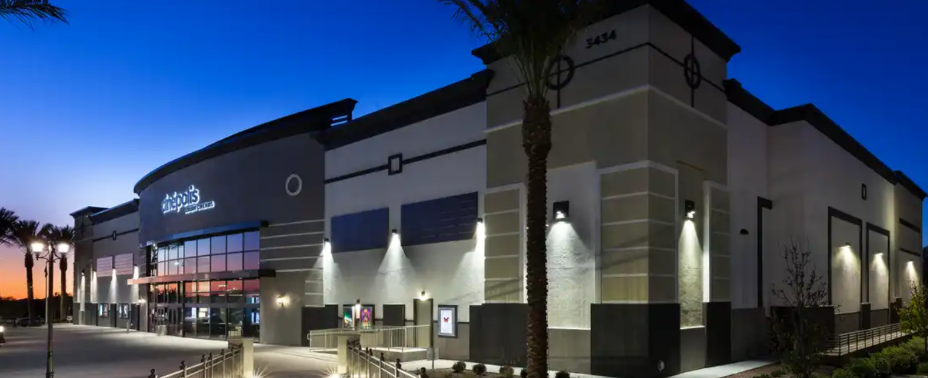
How to Open a Movie Theater: Materials, Layout, and Code Compliance Tips

Every movie theater starts as a concept, but bringing that concept to life takes precision, expertise, and the right materials. From the first layout drawing to the final acoustic test, there’s a direct connection between smart early decisions and lasting performance. For those ready to open a movie theater, the goal isn’t just building a structure—it’s creating an experience that lasts.
Identifying Your Target Audience and Establishing the Foundation
The first step to start a movie theater is understanding the audience you aim to serve. Demographic research reveals more than just who lives nearby; it helps determine what kind of theater will resonate. Are you serving a college town hungry for indie films and late-night screenings, or a suburban family community with demand for mainstream releases and recliner seating?
Knowing your market shapes your business plan. Without this clarity, it’s impossible to build a lasting brand. This early insight also informs decisions about size, number of screens, and amenities, from food service to private event spaces.
Selecting the Ideal Location and Understanding Regulatory Requirements
Once the business case is clear, location becomes the next pivotal factor. A successful theater depends on more than foot traffic—it needs accessibility, visibility, and alignment with zoning laws.
The Role of Zoning, Access, and Infrastructure
Developers who want to open a movie theater must assess traffic patterns, parking capacity, utility infrastructure, and zoning compatibility. These factors shape more than the construction timeline—they influence profitability. Local jurisdictions often have nuanced requirements around emergency egress, occupancy, and ADA provisions. Early coordination with code consultants and local officials can save weeks—or months—later in the process.
Optimizing Auditorium Design for Comfort, Visibility, and Acoustics

The layout of the auditorium plays a bigger role than visual appeal alone—it directly shapes customer satisfaction. From the slope of the floor to the placement of exits, every decision carries technical weight.
The Importance of Noise Isolation and Room Acoustics
One of the biggest challenges when starting a movie theater is preventing sound bleed between auditoriums. Fox Blocks Insulated Concrete Forms (ICFs) provide a proven solution. With STC ratings often between 50 and 55, ICF walls reduce airborne sound transmission significantly better than traditional assemblies. This level of sound isolation ensures viewers in a quiet drama aren’t disrupted by action-movie bass next door. It’s not only about convenience—it’s a performance standard that improves patron retention and online reviews.
Acoustic Control and the Fox Blocks Advantage
ICFs consist of two continuous layers of expanded polystyrene (EPS) surrounding a solid concrete core. This configuration not only buffers sound but also stabilizes interior temperature in every auditorium.
Why ICFs Are a Strategic Choice for Theater Owners
Comfort isn’t limited to seating—it starts with climate control and sound consistency. The high thermal mass of ICF construction reduces HVAC fluctuations and helps systems run more efficiently, lowering energy costs throughout the year. With Fox Blocks, owners gain a building envelope that supports immersive cinema experiences while minimizing utility demand. That level of performance leads to fewer maintenance issues and better long-term ROI.
Energy Efficiency and Long-Term Performance
When you start a movie theater, it’s no longer enough to meet minimum code—it’s smart business to exceed it. Fox Blocks ICFs align with Net Zero construction standards and support low HERS ratings. They’re capable of meeting ASHRAE 90.1 and California Title 24 performance targets, which not only reduce operational costs but also unlock local energy incentives and rebates.
The Value Proposition for Owners and Investors
Energy-efficient theaters are quieter, cooler, and less expensive to operate. More importantly, they create a competitive edge in a market where margins are thin. Lower energy demand directly impacts HVAC equipment sizing and ductwork layout, resulting in capital savings before the building even opens. And for operators in regions with energy benchmarking mandates, high-performance ICF walls offer measurable data they can report to local authorities.
Construction Timeline and Structural Benefits
Beyond performance, ICFs simplify construction. Instead of coordinating separate trades for framing, sheathing, vapor barriers, and insulation, Fox Blocks integrates all of them into a single system.
Sequencing and Trade Coordination
That’s a huge advantage when working on tight commercial schedules. General contractors often report faster build times—up to 30% shorter—when using ICFs compared to conventional methods. This streamlined sequencing also reduces coordination errors between subcontractors, making the schedule more predictable. For developers looking to open a movie theater quickly without sacrificing quality, this matters.
Real-World Application: Cinépolis Theater Case Study

The Cinépolis Theater in Del Mar, California, is a clear example of how Fox Blocks performs under real-world commercial demands. Builders selected ICF walls to improve energy efficiency and reduce sound transfer between screening rooms. The system’s speed of installation helped meet a tight construction schedule while maintaining high acoustic and thermal performance standards—critical factors in a premium moviegoing experience.
Fox Blocks ICFs are also durable. They resist mold, pests, and moisture intrusion, which helps avoid expensive envelope repairs down the road. From a life-cycle perspective, this durability adds another layer of long-term value to the investment.
Interior Experience and Support Systems
Inside the building, technical systems need support from the structure itself. Projection, Dolby Atmos speakers, rigging, and lighting are all anchored into wall and ceiling assemblies.
Structural Support for Immersive Technology
ICF walls do more than carry vertical loads—they provide the structural integrity needed to support advanced theater technology. Whether you're installing ceiling-mounted Dolby Atmos speakers, heavy digital projectors, or high-tension rigging for retractable screens, Fox Blocks ICFs offer a stable, high-capacity surface for anchoring critical systems. Their solid concrete core delivers exceptional holding power, minimizing the need for secondary structural reinforcements or complicated retrofits.
Supporting the Latest AV Systems
This strength and consistency give theater designers greater freedom to incorporate state-of-the-art sound and video systems from the outset. For example, curved or wall-mounted LED panels—now replacing traditional projection in premium auditoriums—require perfectly aligned, load-bearing walls to maintain screen geometry and image quality. ICF walls resist vibration and deflection, helping preserve AV system calibration over time.
Ready for Future Technology
Equally important is adaptability. As theaters evolve to include motion-enhanced seating, VR-based experiences, or mixed-use performance spaces, the infrastructure must allow for future tech upgrades. Fox Blocks' continuous insulation and sound-dampening properties reduce the need for extra acoustical treatments, while their structural versatility makes it easier to modify wall penetrations or mount new devices without compromising envelope integrity.
Operations, Programming, and Community
Even the best-designed theater will struggle without efficient operations and engaging content. Once the doors open, daily execution becomes the focus.
Meeting Real-World Owner Needs
Theater operators face practical challenges: hiring reliable staff, managing multi-screen showtimes, troubleshooting HVAC zones, and controlling concessions waste. An efficient building envelope reduces energy surges during peak hours and keeps mechanical systems balanced across changing occupancy loads. Those aren’t side benefits—they directly impact operating margins and customer comfort.
Creating an Experience That Lasts

Theaters today must deliver on every level—sound, light, comfort, and sustainability. That starts with decisions made far before opening night.
A Future-Ready Cinema Starts with the Right Materials
Developers who want to start a movie theater that can thrive long-term are choosing construction materials that do more than meet code. Fox Blocks supports higher performance from the ground up, providing a solid platform for modern technology, thermal efficiency, and acoustic excellence. From concept through operation, the system works to elevate every frame on the screen.
Build Long-Term Theater Success with Fox Blocks
A high-performing theater starts with a strong foundation—and Fox Blocks delivers the materials to make it possible. Whether you’re in the planning phase or preparing to break ground, our ICF solutions support superior comfort, acoustic control, and energy efficiency. Contact us today for more information.